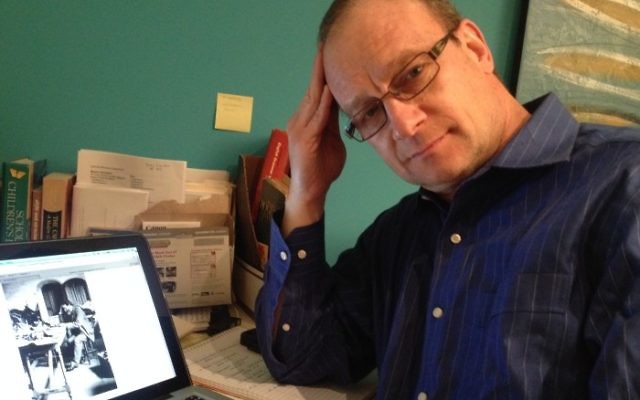Why Was This Night Different?
The memories of this year's Seder remain, along with a sufficient supply for weeks of fried matzah.
Dave Schechter is a veteran journalist whose career includes writing and producing reports from Israel and elsewhere in the Middle East.
The Seder plate has been cleaned and placed in a drawer, to remain there until next Passover.
The Haggadot were collected, save for one or two that guests took home, and put in our unofficial Judaica cabinet, to be pulled out when I prepare next year’s edition.
This year’s notable deletion was an additional telling of the story of the four sons, set to the tune of “Clementine,” while additions included the Mi Sheberach prayer (for people in need of healing), an excerpt from the Langston Hughes poem, “Freedom’s Plow,” and a paragraph from Israel’s Declaration of Independence.
Besides my wife, our two sons, and myself (Darling Daughter attended a seder in Columbia, S.C., where she lives), the seven others at our table were friends who have attended in previous years. What made the gathering extra special was having my 95-year-old mother and one of my sisters join us by video from Chicago, enabling them to join in the readings, prayers, and songs.
After the eating of the Hillel sandwich and before the meal was served, I read a note that my late father wrote in 2000 that came with bookmarks hand-made from the bark of naturally fallen trees around Camp Schechter in the Maine woods.
As always, the meal, a combination of our cooking and dishes brought by guests, was a relaxed affair, with little heed being paid to the need to finish the prescribed order of events (the Hebrew word for that order being “Seder”).
Soon enough, though, the third cup of wine was followed by the fourth and we came to what, based on my reading and conversations, some Jewish Americans found to be a particularly thought-provoking line at their seder tables: “Next Year in Jerusalem.”
The Haggadah, of course, tells the story of the Israelites’ exodus from oppression in Egypt, aided by a providential hand that divided the Red Sea to ensure their passage to safety. Given doubts about the historical accuracy of the story and the consumption of four cups of wine during its telling, no wonder an online Jewish smart-aleck (not me) likened the seder to the television program “Drunk History.”
That declaration — “Next Year in Jerusalem” — can be taken literally, as in, next year we will celebrate the Passover in Jerusalem. For most of us, though, it is an admonition to keep in our minds the modern nation of Israel, founded 75 years ago this year, on the fifth day of the month of Iyar on the Jewish calendar (which this year corresponds to April 26, 2023), which was May 14, 1948, on the Gregorian calendar.
I read this from Israel’s Declaration of Independence: “The State of Israel will be open for Jewish immigration and for the Ingathering of the Exiles; it will foster the development of the country for the benefit of all its inhabitants; it will be based on freedom, justice and peace as envisaged by the prophets of Israel; it will ensure complete equality of social and political rights to all its inhabitants irrespective of religion, race or sex; it will guarantee freedom of religion, conscience, language, education and culture; it will safeguard the Holy Places of all religions; and it will be faithful to the principles of the Charter of the United Nations.”
After a brief discussion of the degree to which Israel has (and has not) met these aspirations, conversation turned to the current crisis, precipitated by the efforts of Prime Minister Benjamin Netanyahu’s government to — depending on your viewpoint — either curb the excesses of Israel’s judiciary or neuter the only body that stands between Israel as a democracy and governance by executive decree.
Admiration was expressed for the hundreds of thousands of Israelis — of all ages, from all walks of life, and diverse in their political philosophies and party affiliations — who have taken to the streets and, carrying their nation’s flag, protested against the haste with which various pieces of related legislation are being pushed through the Knesset. What, we wondered, will be the conversation about Israel next Passover?
Then came the singing of “Chad Gad Ya” (“one little goat” in Aramaic or “one kid” in Hebrew) and the conclusion of our seder.
All that remained the next day were leftovers in the refrigerator, the question,
“Why don’t we eat charoset year-round?” and a sufficient supply to keep us eating fried matzah for weeks to come.




comments